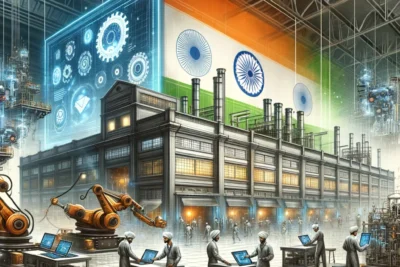As India’s manufacturing sector increasingly adopts Smart Manufacturing Platforms (SMPs) like Optimon from Choice Solutions, it encounters a landscape filled with both opportunities and challenges. This transformative journey is crucial for enhancing efficiency and competitiveness, but it requires overcoming specific hurdles. Here’s a look at some of the primary challenges and how to navigate them effectively.
1. Fostering Organizational Alignment
A key challenge lies in ensuring that the knowledge, goals, and roadmaps outlined by leadership are fully understood and implemented by the operations teams. Bridging this gap through effective communication and training is vital for a unified approach to adopting SMPs.
2. Nurturing Digitalization Maturity
The varying levels of digital maturity within organizations and their SMP providers can lead to setbacks in digitalization efforts. It’s crucial for companies to assess their readiness and choose providers that match their specific needs and growth stage.
3. Strengthening Infrastructure
Inconsistent internet access and power supply in some regions of India can disrupt the operation of SMPs. Addressing these infrastructure challenges is essential for ensuring the smooth functioning of these platforms.
4. Investing in Talent and Skills
The shortage of professionals skilled in smart manufacturing necessitates investment in training and development. Cultivating a skilled workforce is key to maximizing the benefits of SMPs.
5. Encouraging Adaptability
Adaptability to new technologies and processes is vital. Instead of viewing this as a resistance to change, it should be seen as an opportunity for growth and innovation. Encouraging a culture that embraces adaptability can significantly ease the transition to advanced manufacturing methods.
6. Prioritizing Cybersecurity
With the adoption of SMPs comes the need for robust cybersecurity measures to protect sensitive data and maintain operational integrity.
As India’s manufacturing organizations step into the digital era, recognizing and addressing these challenges is fundamental. By fostering organizational alignment, nurturing digital maturity, strengthening infrastructure, investing in talent, encouraging adaptability, and prioritizing cybersecurity, these organizations can fully harness the potential of Smart Manufacturing Platforms like Optimon, paving the way for a more efficient and advanced manufacturing landscape.



